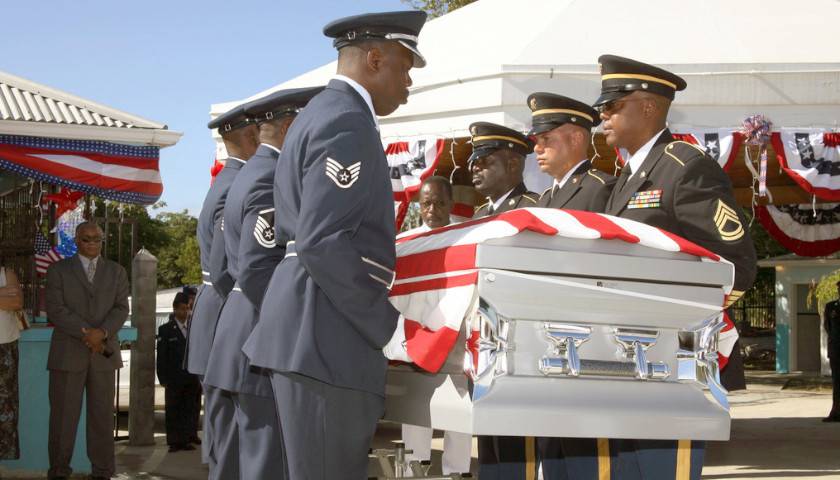by Tim Gallaudet
Later this month will mark a year from a day that shocked the Veteran community. On March 27, 2023, I along with many Americans were saddened to learn of the unfortunate passing of Navy SEAL Veteran Douglas “Mike” Day. In 2007, Day gained considerable recognition when he was shot 27 times at close range while leading a counterterrorism raid in Fallujah, Iraq. Demonstrating unimaginable courage, he was the first to enter a 12-foot by 12-foot room, withstood a withering assault from four heavily armed terrorists, and endured a grenade blast which briefly knocked him unconscious. He quickly regained consciousness and proceeded to eliminate each assailant with a pistol after his rifle was shot away from his grip. Even more remarkable, he rescued six women and children in the structure afterward and, incredibly, exited the scene and boarded a medical evacuation helicopter under his own power. This stunning act of bravery earned Senior Chief Petty Officer Day a Silver Star – the nation’s second highest award for valor.
It took Day nearly two years to physically recover from his wounds, which he described in his moving memoir Perfectly Wounded. After retiring from the Navy in 2010, he continued along the path of service by acting as a case manager and care advocate for other injured service members.
Like so many Veterans, Day was diagnosed with Post Traumatic Stress Disorder (PTSD) and Traumatic Brain Injury (TBI), terrible and invisible wounds that even he – a wounded warrior’s warrior – could not overcome, ultimately causing him to take his life. In the U.S., Veterans are 1.5 times more likely to die by suicide than non-Veteran adults. Research shows that there were on average 17.5 veteran suicides per day in 2021, the latest year that data is available. The U.S. Department of Veterans Affairs’ Under Secretary for Health, Shereef Elnahal, recently declared that even one Veteran dying by suicide is too many, and I wholeheartedly agree.
While I did not know Mike Day, I worked with a few of his former teammates while serving with the Naval Special Warfare Command at the same time he was deployed to Fallujah. In communicating our shared grief over this soul taken too soon, we have realized that more can be done to combat the crisis of Veteran suicides, and every American can play a part:
- Check in on the Veterans in your life. If you have a Veteran in your social circle or family, look for the warning signs—verbally or behaviorally—that precede most suicides. Many individuals who are suicidal may only show warning signs to those closest to them. Even then, without understanding them, they can be tragically overlooked.
- Have the courage to speak up about suicide. Once you observe the warning signs, it is essential to act, either directly or through a trusted intermediary. There is a widespread stigma associated with suicide, and as a result, many people are afraid to speak about it. Talking about suicide not only reduces the stigma, but also allows individuals to seek help, rethink their opinions, and share their story with others.
- Support a Veterans assistance organization. There are hundreds of organizations in the U.S. working to prevent Veteran suicides. For instance, when I led the National Oceanic and Atmospheric Administration (NOAA), we partnered with the nonprofit Force Blue, whose purpose is to help special forces Veterans cope with PTS through efforts that support NOAA’s ocean conservation mission. Whether by volunteering, advocacy, or donations, there are many ways to make a difference through a support group that best fits you.
- Call on Congress to do more to support our Veterans. While the Veterans Administration has made great progress by establishing the Staff Sergeant Parker Gordon Fox Suicide Prevention Grant Program, we must seize every opportunity, such as encouraging Congress to pass the Don Young Veterans Advancing Conservation Act which seeks to improve Veteran mental health by training and deploying them to restore the health of America’s oceans, coasts, and Great Lakes.
When speaking on a podcast about his seven years of work with the United States Special Operations Command Care Coalition, Mike Day gave a glimpse of his humility and spirit when he half-joked, “I was a better social worker than SEAL.” While his former teammates disagree, he acknowledged that his advocacy for hundreds of special operations service members with the organization had a healing effect on his own mental and physical injuries.
The tragic turn of Mike Day’s survivor story underscores the difficulty in identifying and addressing Veteran suicide. When those who help others also need assistance, we know that not enough is being done. By directly supporting Veterans and suicide prevention programs for them, we can ensure an enduring legacy for this American hero’s life of service, both on the battlefield and at the home front.
– – –
Rear Admiral (U.S. Navy, ret.) Tim Gallaudet, Ph.D., is the Vice Chairman of the Board of Directors for Force Blue. He is a former acting and Deputy Administrator of the National Oceanic and Atmospheric Administration (NOAA), Acting Under Secretary and Assistant Secretary of Commerce, and Oceanographer of the Navy.



